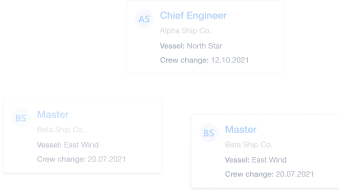Your Ultimate Guide to Maritime Jobs in Seaports
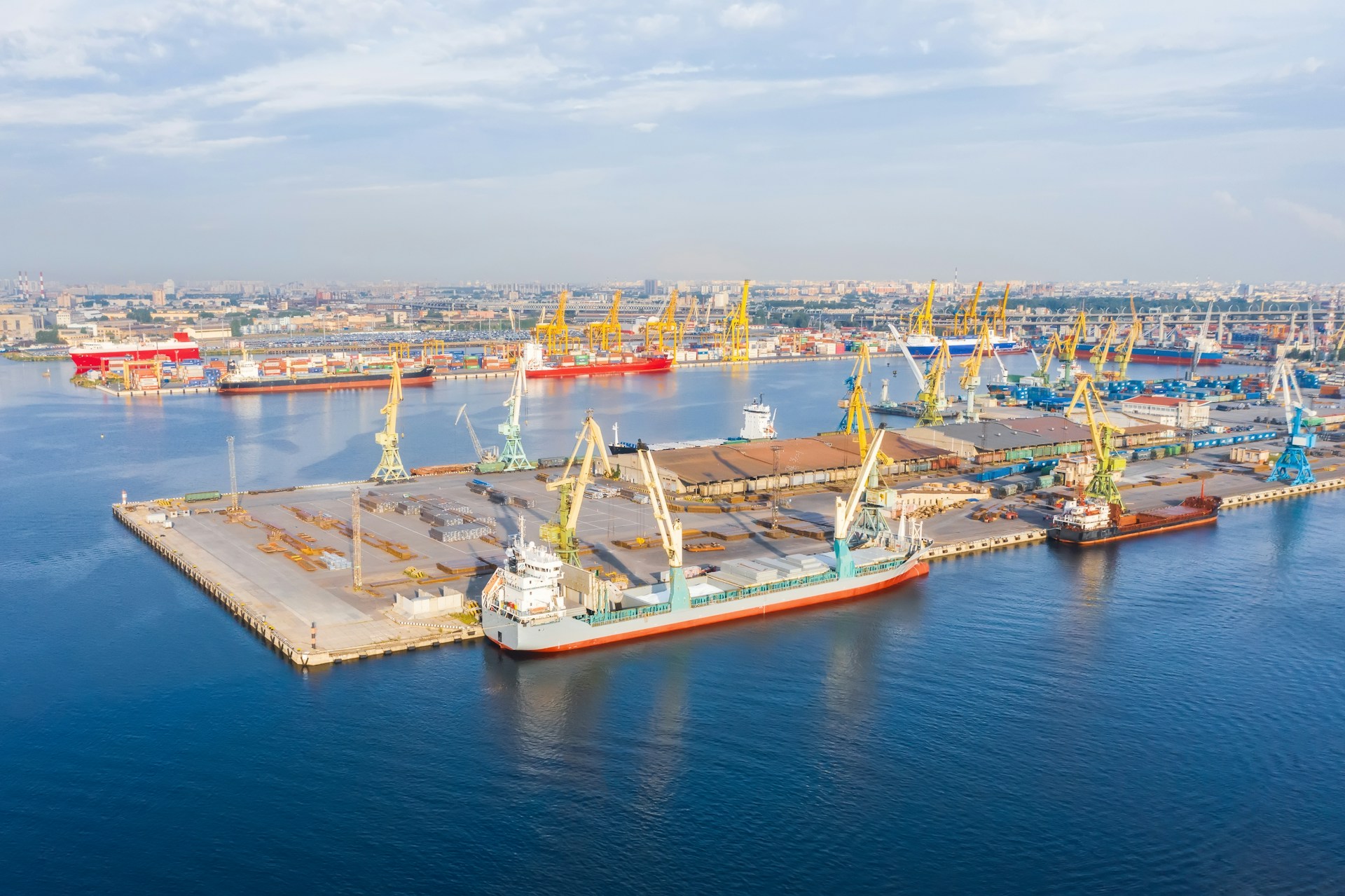
Whether you're a seafarer who's contemplating life in a shore based maritime job, or you're looking to begin a career in the maritime industry but you'd rather be on land rather than working in a job at sea or offshore, you might want to consider one of the many maritime jobs in ports.
After a period of living and working on a cargo ship or other commercial vessel, many seafarers choose to give up their lives at sea and find work in the shipping industry on land.
The same goes for some graduates of maritime academy or school who are both fascinated by, and dedicated to, the industry but for whatever reason are not prepared, or able, to spend months away at sea.
What are some jobs working in a port or container terminal?
Whoever you are and whichever one of those categories you fall into, the good news is that there is a huge choice of shore based maritime jobs to choose from that might just be perfect for you.
Desk jobs in the maritime industry
Of course there are countless desk jobs in the maritime industry: the people who work behind the scenes in maritime recruitment, helping seafarers find contracts on vessels. The lawyers who ensure the legal aspects of shipping are adhered to. The crew operators who book flights and make sure seafarers make it to the port in time for their crew change date!
But chances are, especially if you're a former seaman, you might want to stay a little closer to the ocean. And that potentially means finding and perhaps retraining for one of the many jobs in seaports.

Read more: Exploring Shore-Based Maritime Jobs for Seafarers
If so, carry on reading as in this article we’ll be taking a look at what kind of port and shore based maritime jobs there are, some of the skills needed for working in ports, plus the seafarer training and qualifications you might need to be hired for a job in a seaport.
But first let’s take a closer look at what day to day life in a port might involve.
Shore based maritime jobs: different types of ports
The thing is, not all ports are created equal. They don't all have the same functions and they don't all play host to the same types of vessels. Therefore, the kind of day to day work in a port very much depends on the purpose of that particular location.
For example, a port might handle imports and exports. It could be a terminal for cruise liners and ferries. It may be geared towards the fishing industry. Or it could be purely for pleasure and leisure and boast stylish recreational facilities - for example a marina for yachts and small craft.
In a similar vein, employers in the shipping industry can range from a port authority to a maritime transport and logistics firm. From a ferry or cruise operator to a stevedoring company. And from a vessel repair company to a freight forwarder. Life in a port is a busy and very varied one.
The physical side of working in jobs in ports
It probably goes without saying that a good number of port jobs are physically challenging and you will require a certain level of physical fitness in order to qualify for them. It's likely that an employer will need you to undergo a medical check for many of these jobs too.

But having said that, if you are an active person and using your strength and agility in the workplace is something you thrive on, finding one of the many available jobs in a port could be the right career pathway for you.
If brute strength isn't one of your attributes but you're still set on working in a port, don't worry because there are plenty of other shore based maritime jobs that are based in and around ports and that don’t require you to be super active and physically strong.
For example, there are still desk jobs to be found in ports and if that sounds more like your fit, you could look into one of the many opportunities in the maritime industry in areas such as human resources, operations, administration, finance or tech.
Opportunities for maritime jobs in ports
As we’ve mentioned, jobs in seaports are varied and that means that everywhere from the biggest container ship port to the most chic of yachting marinas to the smallest of harbors are usually looking to recruit trained or qualified staff to ensure that operations are carried out correctly and efficiently.
The use of technology in the shipping industry is rapidly growing which means that there are increasing opportunities for jobs in marine tech. That means if you're a coder or programmer you could find yourself in high demand.
Related: How to Create a Standout LinkedIn Profile to find Seafarer Jobs
These days ports are automated and mechanized and need to run without a hitch but with strict adherence to rules, regulations and schedules. With so many different customers, suppliers, deliveries, ETA's and deadlines to factor in, a port really does need to run like that old cliché of a well oiled machine!
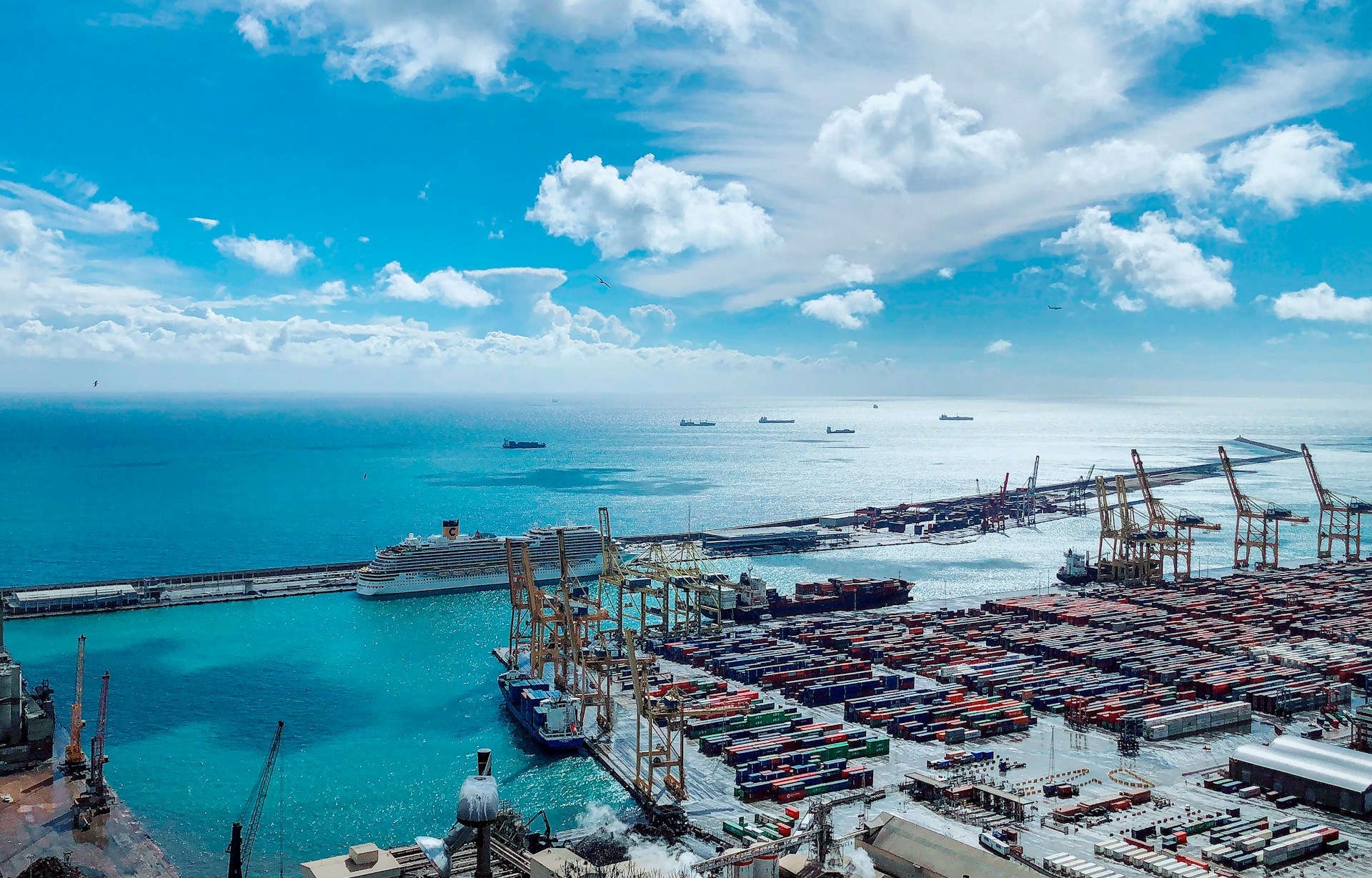
If you have an attention to detail, a love of software and automation, a port might be the right environment for you.
And if shipping is to retain its crown as the world’s transportation method of choice, a port also needs to be run economically and within its budgetary constraints. That's where anyone with a good head for figures can enter the picture.
Different types of maritime jobs in seaports
No matter what your level of experience, whether or not you've worked at sea for many years or you're applying for your first shore based maritime job, if you want to work in a port you need to count organization, dedication and competency among your skills.
These will all combine to make you a valuable player in the safe and efficient operation of your place of work.
So with that in mind, let's take a look at a few of the maritime port jobs that you could think about training - or re-training - for if you’re looking for marine jobs ashore in the shipping industry.
- Port Managers: most things that are related to the seaport come under the responsibility of the Port Manager. That includes everything from operations to health and safety, right down to the port's development. The job description also involves communicating with all of the different organizations who use the port: freight forwarders and shipping companies for example.
- Marine Pilots – a Marine Pilot is someone with a deep understanding of a certain port’s entry and exit. The pilot has responsibility for boarding ships that are approaching, or departing from, the port and navigating them safely in and out to ensure their safe passage.
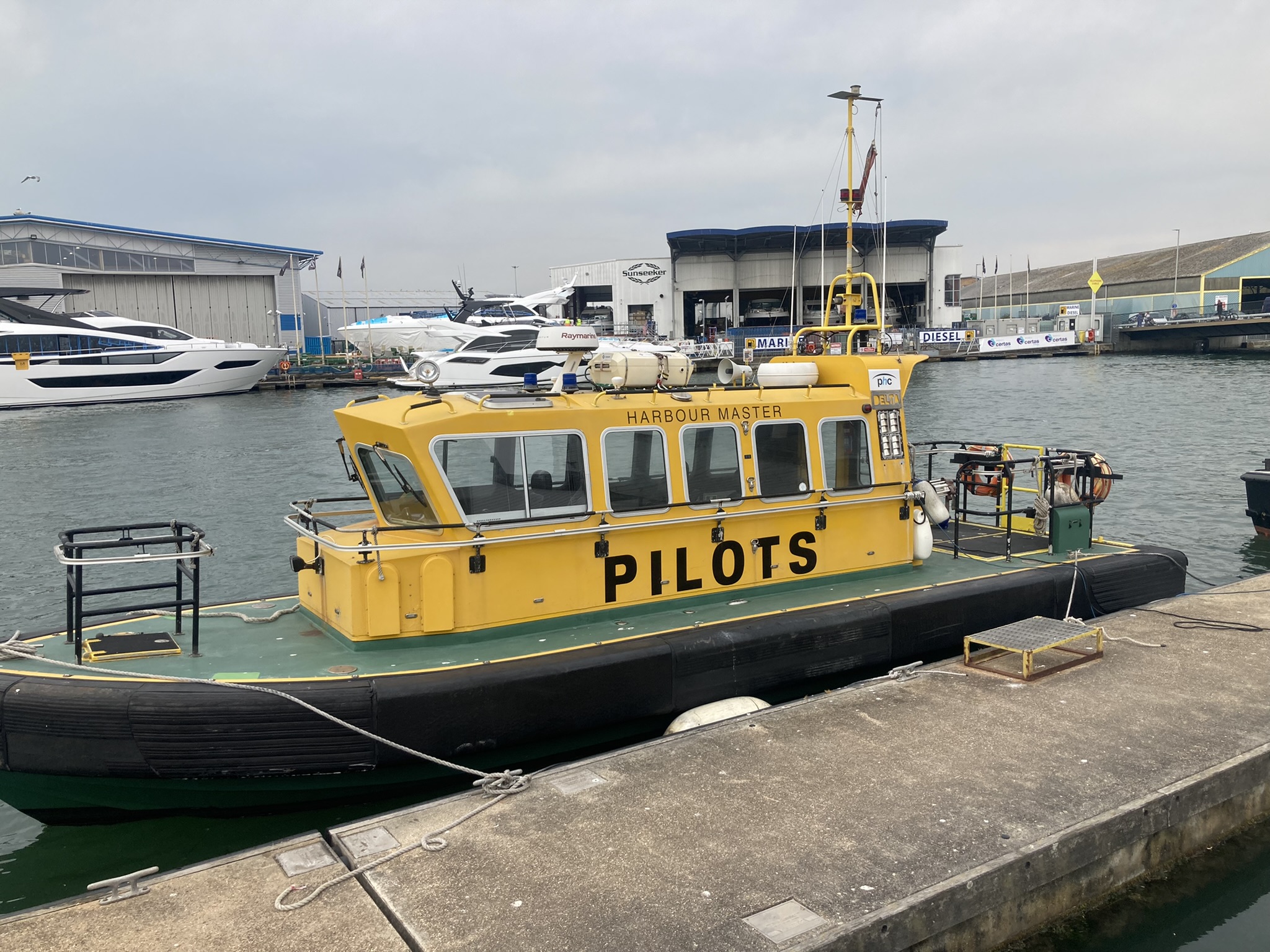
- Stevedores – also called longshoremen, dockers, dockworkers, roustabouts, dockhands, or rousters, this port-based job involves working with a vessel's containers. A stevedore loads and unloads the cargo and may also be responsible for deciding how that cargo should be stacked. They might also be called upon to make decisions about the most efficient way to deal with the cargo in a timely fashion. For this role you will need to know how to operate forklift trucks and goods lorries, and/or machinery such as cranes, suction pipes, and conveyor belts.
- Vessel Traffic Services Operatives – located in the control center of a port, a VTSO will ensure safety by controlling the movement of ships in and around the port using marine radar and liaising with vessels by VHF radio or radio telephone.
- Port Operators - when the stevedore has finished unloading a ship's cargo, the port operator takes over. Port Operators are in charge of ensuring that shipments are transported from the vessel to either a holding zone, a warehouse, or onto a truck or train for onward transportation. Like the stevedore, this is one of the shore based maritime jobs that might require you to be qualified to operate a mobile crane and/or a forklift.
- Maintenance Engineers - responsible for the repair and maintenance of equipment, port or Marine Engineers in shore-based maritime jobs might specialize in civil engineering, electrical engineering or mechanical engineering. Their role is to make sure that the vessels, as well as the port's vehicles, plant machinery and other equipment, are serviced and maintained to the required standards.
- Harbor Master - not just confined to small sailing harbors, the Harbor Master oversees the safe and efficient operation of the port, including vessel traffic management, regulatory compliance, and emergency response coordination.
- Dock Supervisor - manages dockside activities, coordinating vessel berthing, cargo loading/unloading, and ensures that safety regulations are followed.

- Crane Operator - as the name suggests, this maritime job based in a port comprises operating large cranes to lift and move cargo containers between ships, trucks, and storage areas.
- Tugboat Operator – like the Marine Pilot, working as a Tugboat Operator is a good maritime career option for anyone who wants to continue to work on the water, but who doesn’t want to spend six months at sea. The job involves piloting tugboats to assist large vessels in maneuvering within the port, especially during berthing and departure.
- Customs Officer – Inspects cargo and passenger vessels to ensure compliance with national regulations, collecting duties and preventing illegal imports.
- Port Security Officer – the PSO ensures the security of the port, preventing unauthorized access, monitoring for suspicious activity, and enforcing port safety regulations.
- Shipping Agent – the agent acts as a liaison between shipping companies and the port, handling paperwork, arranging pilotage (the act of piloting a vessel - see Marine Pilot above) and managing crew changes.
- Logistics Coordinator – a shore-based maritime job for anyone with strong organizational skills, the Logistics Coordinator organizes and oversees the movement of goods through the port, ensuring efficient storage, handling, and transportation.

- Warehouse Manager – similar to a Warehouse Manager in any industry, this job includes overseeing the storage and handling of cargo in port warehouses, ensuring efficient distribution and inventory control.
- Environmental Compliance Officer – with an increasing focus on environmental concerns, the ECO is instrumental in monitoring port operations to ensure compliance with environmental regulations, including waste disposal and pollution control.
- Port Planner – the Port Planner develops plans for port expansion, traffic flow management, and infrastructure improvements to enhance operational efficiency.
- Ferry Terminal Operator – this maritime job in a port involves managing ferry operations, including ensuring that passenger and vehicle embarkation and disembarkation is conducted smoothly.
- Bunkering Supervisor – bunkering or to bunker is the act of supplying a vessel with bunker (fuel). The supervisor oversees fuel transfer operations to ships, ensuring safety and regulatory compliance in the refueling processes.
- Ship Chandlers – a chandlery is a retail store that sells provisions, dried goods, equipment, spare parts and other marine supplies to ships that are docked at the port. A Chandler is someone who works in this store.
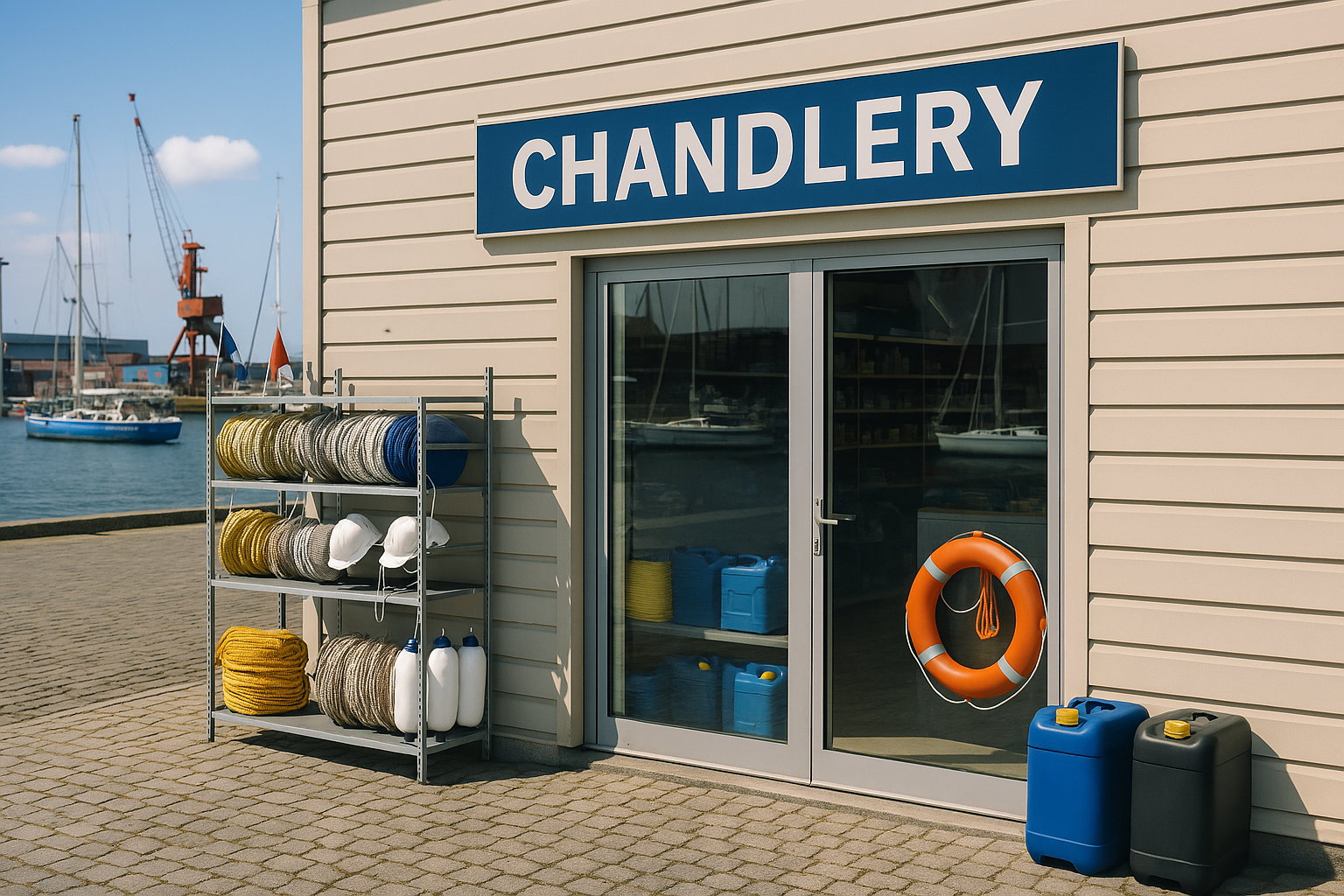
What skills do you need to find a job in a port?
In some ways, working in many of the different jobs in a port isn't all that different to working in maritime jobs at sea. In particular, a lot of the personal qualities needed by an employee on shore are the same as a seafarer.
Namely an eye for detail, punctuality and integrity. And often physical strength and determination.
It goes without saying that safety awareness is an absolute must in the maritime industry and anyone working in one of the many positions in a port needs to be aware of their responsibility towards not only crew mates and co-workers, but also the vessels and cargo they work with too.
That boils down to having a responsible and safety-conscious attitude, and the people skills and desire to work as a team.
In relation to this, good communication skills are always a big plus. In the maritime industry even the smallest miscommunication or instance of something getting lost in translation can cause real, and very serious, issues.
With that in mind, if you can speak two or more useful (in the shipping industry) languages, you could be a real asset.
We've already covered the need for you to be strong and healthy in many shore based maritime jobs and manual labor and heavy lifting may be a big part of your job, depending on what position you apply for.

Due to the nature of the shipping industry - an industry which literally never sleeps (just ask an Officer of the Watch!) you might also need to be prepared to work unsociable hours: let's face it - working in the maritime industry in many jobs isn't your typical 9 to 5!
Last but not least, and something we touched upon earlier, you might well be asked to take a medical examination when applying for a position. Passing this could mean the difference to you being offered the job...or rejected. Part of this exam may cover you having color-normal vision.
Training and qualifications for maritime jobs in ports
One thing that you also need to be aware of, is that undergoing the right training and having the correct qualifications are essential if you want to apply for one of the many marine jobs ashore.
But the good news is that there are a number of job opportunities in ports no matter what your level of experience and your relevant qualifications are. In fact for a lot of the more manual jobs, such as port operative or stevedore, the majority of ports won't need you to have formal qualifications.
Read this: How to Answer 4 Questions You May be Asked at Seafarer Job Interviews
Having said that, having a diploma or equivalent in high school subjects like Math, Science and English will help set you apart from the competition when it comes to applying for jobs so don't make the mistake of thinking you can just give up on school entirely!
By their very nature, a lot of jobs in ports can be physically demanding and an employer will be keen to see if you have previous experience of being able to withstand anything Mother Nature can throw at you - even if it's not directly related to the maritime industry.
So if you've ever worked in extreme temperatures - either hot or cold - before, this could prove valuable in proving you can work in a port.

The other good news is that when it comes to training for many of the roles you'll find in ports, it's usually done on the job and some employers in the maritime industry might also let you work towards gaining the relevant qualifications while you're employed.
These qualifications could range from being qualified to supervise operations in the port to regular health and safety certifications.
Meanwhile if the thought of working, still in the maritime industry, but somewhere warm and dry - such as an office - appeals to you, your physical fitness and ability to cope with harsh weather won’t be such a deal breaker!
If you do see yourself working in an office environment in shipping it's a lot more likely that you'll need high school or above qualifications. Exactly as you would if you were applying for a desk based job in a non-maritime company.
If you're a graduate of a university or maritime academy, check if a potential employer offers a graduate management training scheme.
Want to work in a port? Here’s what to do next
If you are looking to work in a port, the first step is to research the different job opportunities available and determine which role best suits your skills and interests. We’ve given you some outlines of various maritime jobs in ports to get you started but you’ll want to do some deeper research.

Many ports have official websites where they post job openings, so checking these regularly is essential. Additionally, contacting local shipping companies, stevedoring firms, and port authorities can help uncover job opportunities.
As we’ve covered above, gaining relevant qualifications or certifications, such as a forklift operator’s license, maritime safety training, or logistics certifications, can improve your chances of securing a position.
Networking with professionals in the maritime industry through career fairs or maritime organizations can also be beneficial.
If you have no prior experience, consider starting with an entry-level position such as a dockworker or a port security officer, as many roles provide on-the-job training and opportunities for career advancement.
Finally, preparing a strong resume that highlights relevant skills, such as physical stamina, teamwork, and attention to safety, will make you a more competitive candidate.
Your steps to finding a job in a port
So, to summarize, if you want to find a maritime job in a port, try one (or all) of the following:
- Research the different job roles found in ports
- Check the job listings on websites for the ports in your country and consider entry-level positions to get a foot in the door
- Contact local shipping companies, stevedoring firms and port authorities
- Consider gaining qualifications in areas such as fork lift truck driving
- Make sure your resume is up-to-date and the very best it can be
- Network with other maritime industry professionals - both online and in person at events and job fairs

How to find the right job at sea for you
There’s a lot to think about when deciding to embark upon a career in the shipping industry, no matter whether you’re looking at jobs in ports, marine jobs ashore or working in a job at sea.
If you think you'd eventually like to work in a job such as Marine Pilot or another role that requires some previous knowledge of working on a vessel, take a look at Martide’s seafarer jobs and see if we have an open job position that catches your eye.
Or perhaps you've reached the end of this article and decided that a life on the ocean wave is for you after all!? If so, register an account with Martide: It's quick, easy and free - and once you've done it, you'll have access to all of our vacant jobs at sea.
Wherever you want to work in the maritime industry: at sea or on land, don't forget to follow us on Facebook, LinkedIn, Twitter/X, Blueskyand Instagram for the latest in maritime industry news, our blog posts, and of course the best seafarer job vacancies.
This blog post was originally published on November 7th 2019 and updated on April 15th 2025

Eve Church
Eve is Martide's content writer, publishing regular posts on everything from our maritime recruitment and crew planning software to life at sea. Eve has been writing professionally for more than two decades, crafting everything from SEO-focused blog posts and website landing pages to magazine articles and corporate whitepapers.
UK
